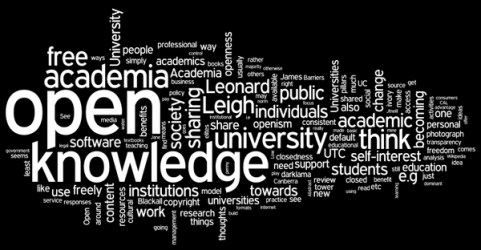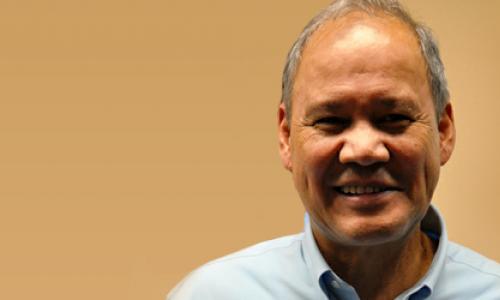
Something is very wrong.
Maybe it’s just the “what does it all mean?” question that I find myself asking from time to time, without being able to come up with a satisfactory answer. Maybe it’s the existentialist in me coming out since I started reading R.D. Laing’s The Politics of Experience and the Bird of Paradise (a gem of a find from United Way’s recent used book sale).
Whatever it is, something is wrong.
For a long time, all I’ve really wanted to do with my career has been to help people. So far, this has culminated in the pursuit of a Masters in Counselling Psychology, and of course, my work with Career Services as a Career Advisor. Perhaps it’s my experiences in the latter that have created this dissonance that I’m currently feeling. At least, dissonance seems to be the right word – there is something of a disconnect. Let me make a clear statement right off the bat, though: I’ve loved this job and all of my colleagues here from the start and I think that we do fantastic and useful work everyday, a view that is fortunately often echoed by the students that we serve.
But I’m a big picture person. Right now, the big picture that I’m concerned about is the institution of higher education. Not SFU or any other specific university or college, but academia in all its nebulous, impersonal constitution.
It’s almost unreal how many students I’ve been seeing recently who, in the early years of their bachelor’s degree, are so concerned with their prospects after graduation that they are functionally paralyzed: unable to make a decision about what to study for fear of choosing “the wrong path.” To me, it’s quite disconcerting, as I know that there are many students out there toiling in disciplines that they really have no interest in or passion for, all for the sake of perceived employability at the end of the day.
Don’t get me wrong – the future of a given field is of course an important consideration when deciding on a field of study. But is it the most important? My answer is a 100% no. It’s far more important to have interest and passion for your field, to feel that you are doing something personally meaningful, whatever form that may take.
By no means is this paralyzing concern the fault of students. No, students are victims of a combination of systemic forces that are changing the face of higher education as we know it. It used to be that people would go to university simply to pursue knowledge in a particular field. To be on the cutting edge of new developments in research and critical thought. To learn, for the simple reason that they wanted to learn.
More recently, this has begun to be displaced by a collective belief that the purpose of universities is career preparation, not learning for learning’s sake. The way I see it, a number of factors are contributing to this development, but one stands out above the others. Education as an institution is putting more and more pressure on students at earlier and earlier ages to answer the question: What are you going to do with your life? What is your direction?
But who in their right mind can answer that question with certainty, even in the first years of post secondary education? We are asking students to answer these questions without acknowledging that normal career development is heavily influenced by chance events – things that you can’t predict with any kind of accuracy. That so many students cannot come up with an answer shouldn’t be a surprise.
So, we have a perception that universities are there to prepare us for our careers, and a reality that is somewhat different: Higher education is still as much about learning for learning’s sake as anything else. The result? Students feel like they were owed something that they didn’t get. After so much work just to finish a degree in the first place, they don’t know how to translate the skills they crafted over years of academic exertion into a paycheck.
In the end, this is what a lot of the conversations in my office end up being about.
There may not be much that we can do to make systemic change happen quickly. But students can try to embrace attitudes that will hopefully lessen the stress of picking the right career. Know that it’s normal to feel lost or uncertain. Know that, despite all the pressure that you’re feeling from many different areas of your life to settle on something right now, the vast majority of people end up doing something different than they thought they would be doing, and there’s no changing that. Know that one of the best ways to help you succeed in your courses and get the most from your education is to study something that you care about.
There’s a lot of work to be done in transforming academia – indeed, education as a whole – into something that effectively balances the need to pursue knowledge and build general skills with the need to effectively train generations of happy and productive workers. I sure don’t know what needs to be done, or if there is even an ultimate solution, but there are sharper minds than mine out there to address that issue.
For now, I’ll stick with what I enjoy most: helping people, even if one by one, in their struggles.
















